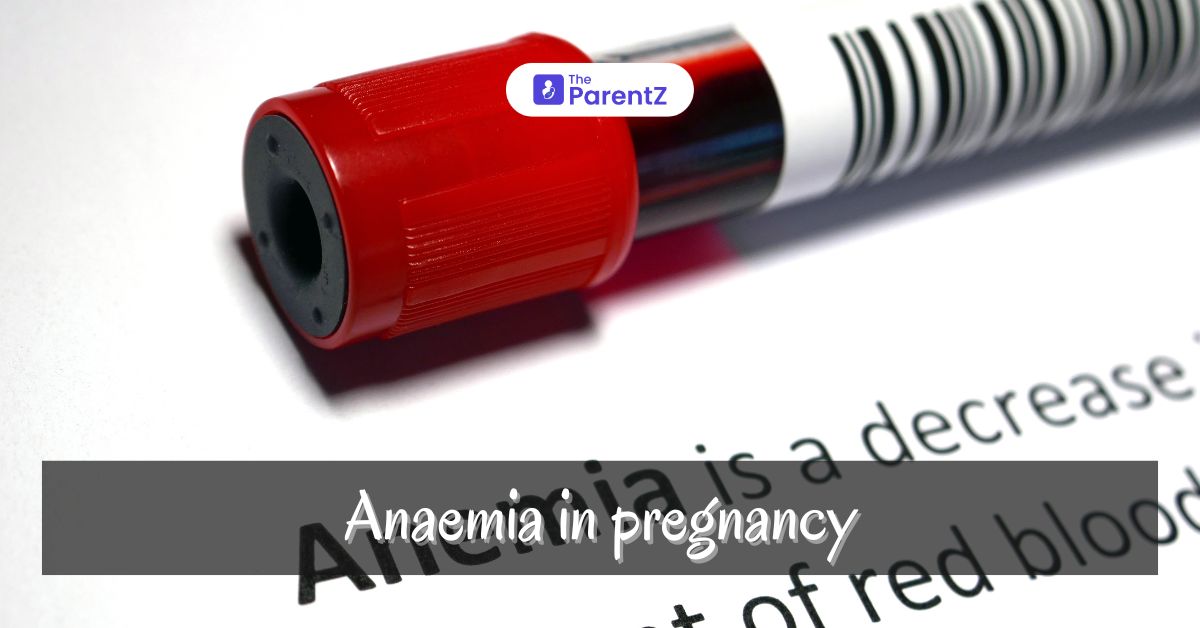What is anemia?
Anaemia means that your body is not producing enough red blood cell or hemoglobin. Hemoglobin is the protein present in the red blood cells which is responsible for carrying oxygen to various tissues in the body. In anaemia, due to lower concentrations of haemoglobin or less number of red blood cells, enough oxygen is not supplied to tissues of the body.
During pregnancy, your body produces more amounts of red blood cell to support the growth of the baby. If you do not have a proper diet or due to other causes your body is unable to produce enough haemoglobin, it can cause anaemia. Having anaemia in pregnancy can make you feel weak and tired all the time. Severe anamia can also increase the list of complications such a preterm delivery.
There are several different kinds of anaemia but the most common ones observed in pregnancy are nutritional anaemia. Nutritional anemia means that due to a deficiency of some nutrients, proper synthesis of hemoglobin is not possible and anaemia is the present. The three types most commonly observed in pregnancy are :
- Iron deficiency anaemia
- Folate deficiency anemia
- Megaloblastic anaemia (deficiency of vitamin b12)
What are the signs and symptoms of anemia in pregnancy?
The common symptoms of anaemia which can be noticed during pregnancy include
- You may have a general feeling of tiredness.
- Your hands and feet would be cold to touch.
- You may feel dizzy or lightheaded.
- You may have frequent headaches.
- You may feel shortness of breath especially upon exertion.
- Your fingertips or tips of nose or the mucous membrane of mouth may appear to be pale.
- Your heart rate may increase and you may feel palpitations.
- You may feel that you are breathing heavily or faster.
- You might notice easy bruising.
- You may feel dizzy when you stand up.
Does anemia in pregnancy cause problems for the baby?
Severe anemia in pregnancy would mean that even your baby is not getting enough iron, folic acid or B12. This can lead to development issues. If anemia is not managed, your baby would be at a risk for developing anaemia at birth, being born at a lower weight or being born prematurely.
If anaemia is due to a deficiency of folate or vitamin b12, your baby will be at a risk for developing neural tube defects, spina bifida and developmental delays.
When should I consult a doctor?
You should consult a doctor if you notice signs indicating anemia such as:
- You feel dizzy.
- You have frequent headaches.
- You have palpitations or a fast heartbeat.
- Your skin becomes pale than usual.
- You have a sore tongue.
- You notice unintended movement in your legs.
How to take care at home?
Anaemia is very common during pregnancy and care should be taken to prevent and control it. Some things to be kept in mind are:
- Visit your health care provider for regular check ups which would include blood tests for monitoring of hemoglobin levels.
- Consume all the prenatal vitamins as recommended by your doctor.
- Iron and folic acid should be consumed in enough amounts in the diet.
- You should have more iron rich food as green leafy vegetables, legumes, poultry and lean meats.
- Have folate rich food such as green leafy vegetables, citrus and fortified food.
- You should have vitamin c which helps in the absorption of iron from the diet. Try to have more vitamin c along with the iron rich food.
- Avoid having food which inhibit the absorption of iron such as Coco, coffee and calcium at the same time. When taking iron and calcium supplements simultaneously, have them at different times during the day.
- Some infections can lead to anaemia. Hence, protect yourself from infections and follow proper hand wash hygiene.
- Protect yourself from malaria as it is also common cause for anaemia during pregnancy.






Be the first one to comment on this story.